‘My dog physicians detected my cancer before doing’
Brea Bortner’s dog, Machi shows abnormal and intuitive behavior throughout his journey, Stage 2B Triple-Negative begins to fix his breast before breastfeeding.
Brena Bortner says that she had a dog’s hand – or a paja – to save her life.
“I have always heard the story where people know that their dogs understand things,” Minnesota woman, now 31, told Fox News Digital during an on-camera interview. (Watch the video on top of the article))
In 2023, Bortner – who now invented the experience of the “brave beautiful bubby” blog, invented his breasts.
Cancer drugs of experimental women increase the survival rate of significant research
It was about six weeks between the invention of the molasses and the biopsy, he recalled.
He said that in the midst of the discovery of The Lump and Bortner’s diagnosis, Mochi was settled on his owner’s right breast, he said. (Brainena Bortner)
At this time, the Bortner’s Kakapu, the mochi, is fixed on the breast in the alley. The behavior was surprised by Bortner, who said that the dog never behaved that way before.
“When I was ill in the past or deal with other things in the past, he did not do it, so for the first time I really noticed how much he did with my body,” he said.
This painful side effect of general cancer treatment may contain
The results of the biopsy have soon confirmed that Bortner’s breast cancer was cancer – but he said that he already knew, courtesy of Mochi.
“I was there, oh my gosh, he knows this whole time. Before I knew and the physicians knew.”
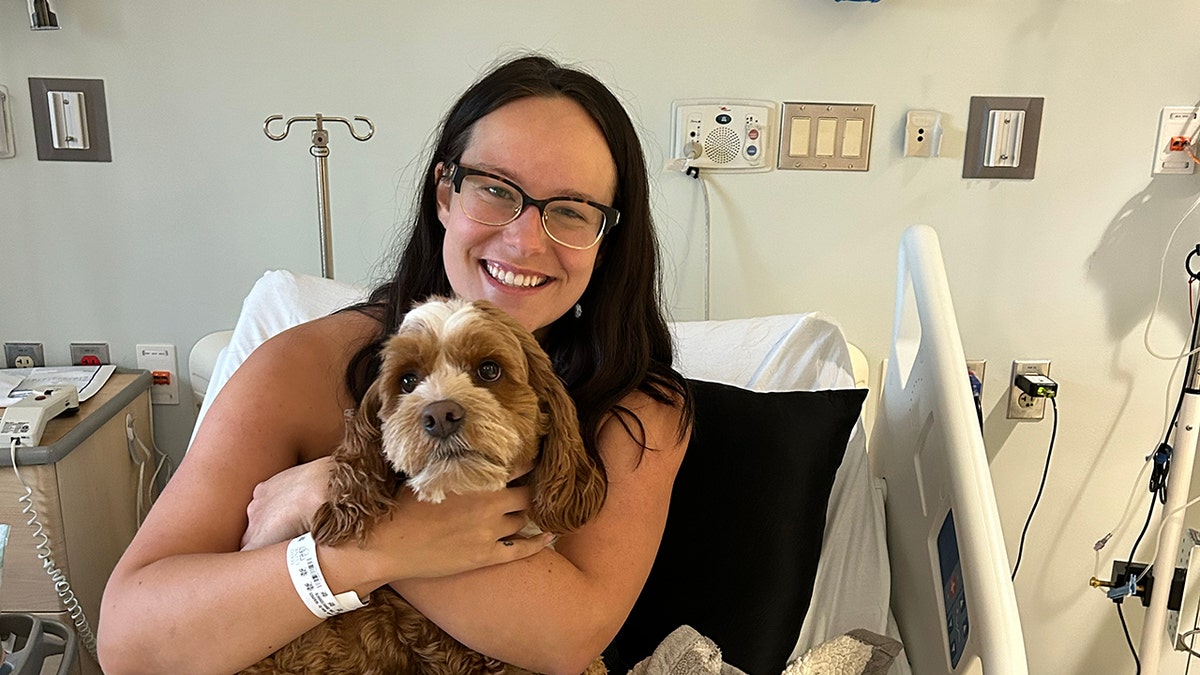
“Like I was, hey my gosh, he knows this whole time,” his Kakatur Bortner, Mochi, who seemed to have detected his cancer. (Brainena Bortner)
The American Cancer Society says physicians detected Bortner with a type of breast cancer, a type of breast cancer, the physicians said that the American Cancer Society has less treatment than other types of aggressive breast cancer.
Disability Veteran Support, with Superhero Dogs with ‘Batman’ sign for companionship
This is because these cancer cells do not have specific receptors that allow them to be treated through hormone therapy.
“If cancer does not spread to remote sites, surgical treatment is an alternative. Chemotherapy can first be given to shrink a large tumor, then after surgery,” the ACS website reads.
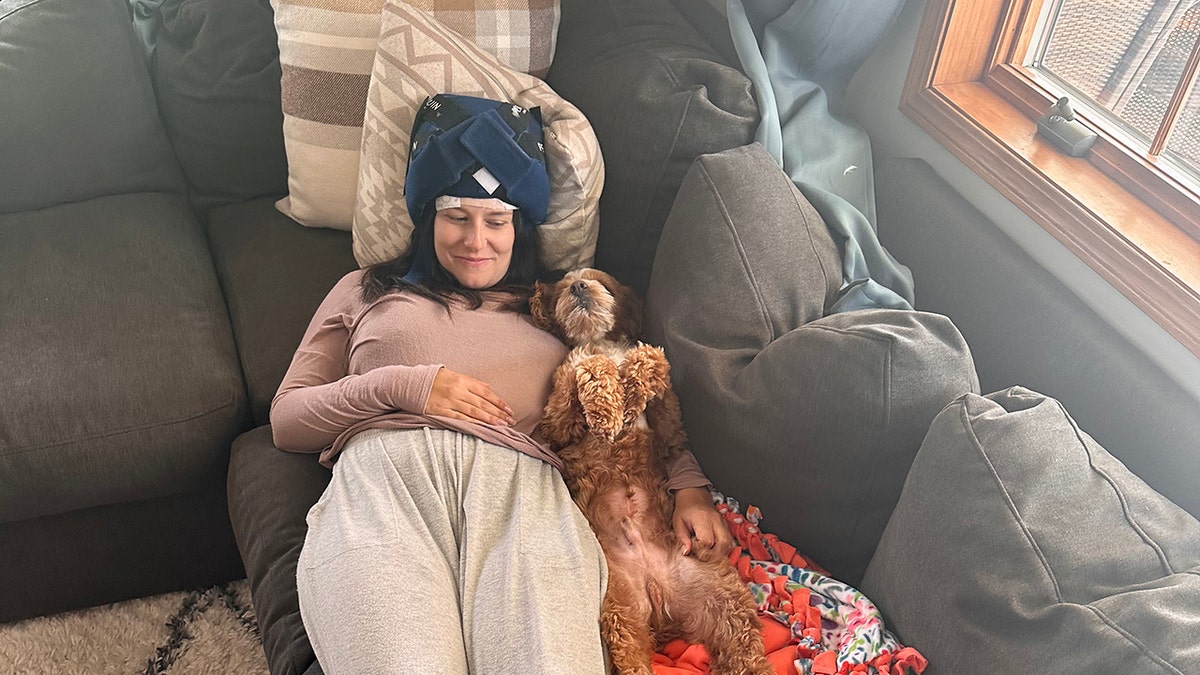
“Everything about [chemotherapy drugs] Fearful, “Bortner said, who decided to refer to them as” healing session “instead. (Brainena Bortner)
After the physicians confirmed the cancer, Bortner said that the process had moved very quickly. He did chemotherapy (16 rounds in total) for five and a half months.
“Chemotherapy is a very scary, terrifying word,” he said. “Everything about [chemotherapy drugs] Fearful I could see that it was better for me to say their ‘healing session’ instead of chemotherapy. “
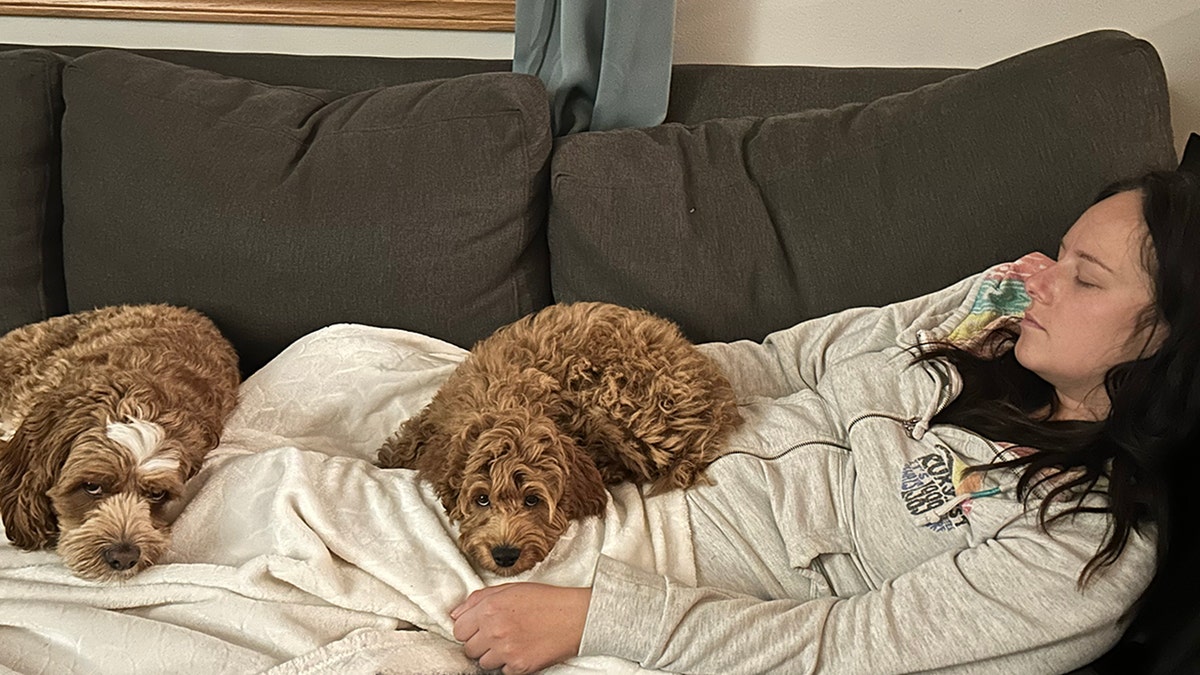
The part of Bortner’s inspiration to continue is that he does not want Machi to lose his “human mother”, he shared. (Brainena Bortner)
Bortner said that Mochi, whom he called him “Soul Doug”, continued to be the source of ease – and the reason for continuing on those dark days.
“At that time he was only 2 years old,” he said.
For further health articles, see www.foxnews.com/health
“And I was, ‘I can’t leave this world before you.’ Like, no way.
Actions as a worldly to feed the dog or go to the fence helped Bortner to get off and continue from the couch.
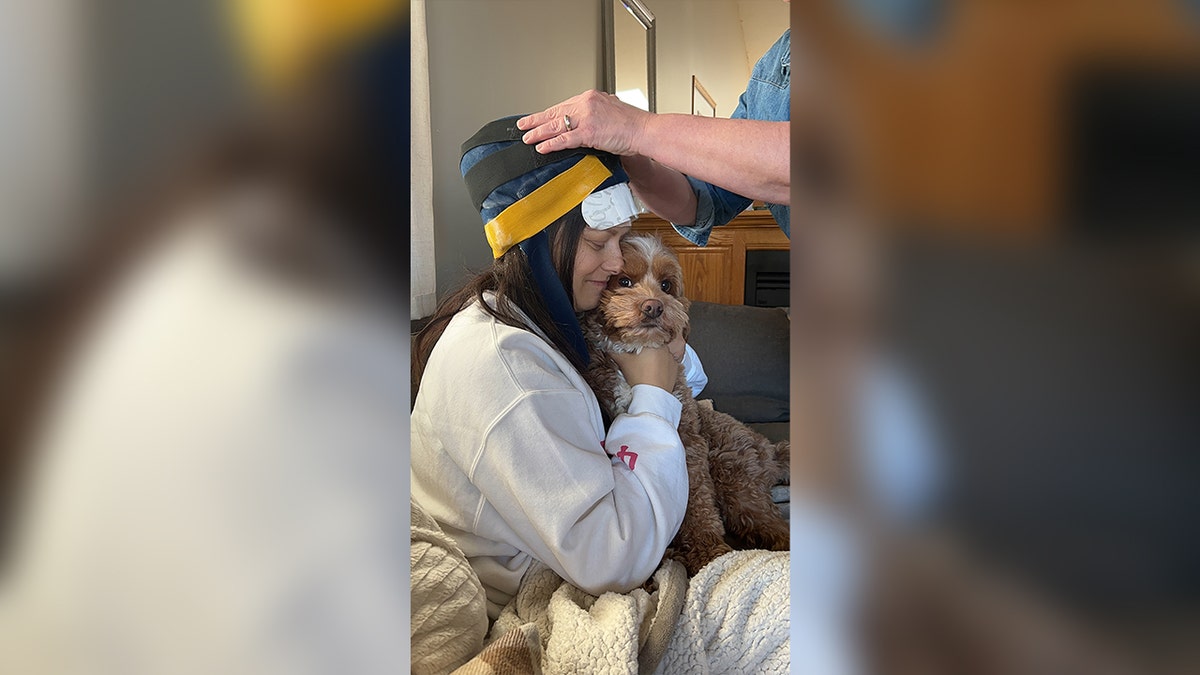
Machi adapted to Bortner’s new life during his recovery, slow, slow down the foot. (Brainena Bortner)
Bortner has learned to adapt to Bortner’s new life during the recovery, because their walks were slow and short.
When Bortner used to cry for a long time or sometimes, the dog was always there to comfort him, he shared.
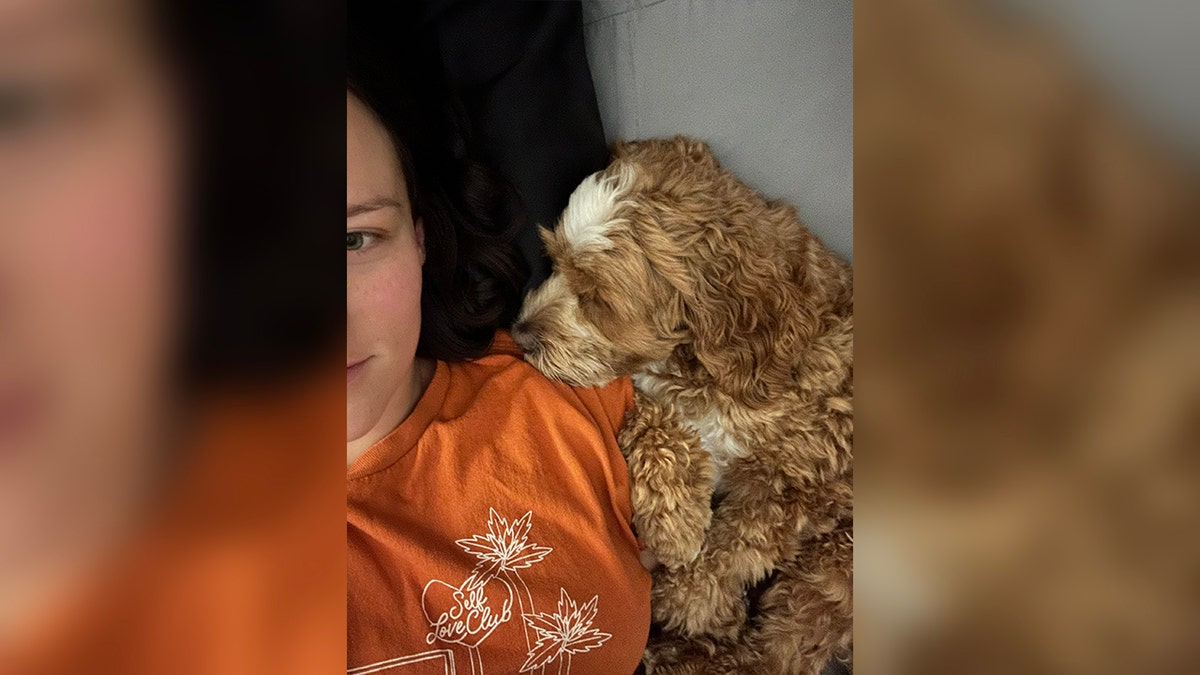
“I can’t leave this world before you can,” the Bortner’s mochi recalled her thoughts after the diagnosis. (Brainena Bortner)
When he left for the appointment – sometimes multiple times a day – Mochi used to dug with garbage for his owner’s hair, which was falling because of chemotherapy at that time.
“He used to dig my hair to get my odor,” said Bortner.
Even now, for about a year outside of Bortner’s cancer treatment, Mochi still digs through garbage outside the practice.
Click here to get Fox News app
Today, Bortner provides the help of others through the same experience, serving as a source of information about what to expect and how to move.
“When things come to the whole circle it only brings a smile on my face – and now I’m on the other end, consulting people through their cancer travel,” he said.
The physicians share insights
Dr. Mark Sigel, a clinical professor of medicine at NYU Langon Health and Fox News, confirmed that the dog “smells” has a subtle idea.
“There is evidence in medical literature that they can actually smell of abnormal cancer proteins,” the doctor told Fox News Digital.
“In fact, artificial cinnin nose is created depending on this response. Artificial intelligence is now increasing this power.”
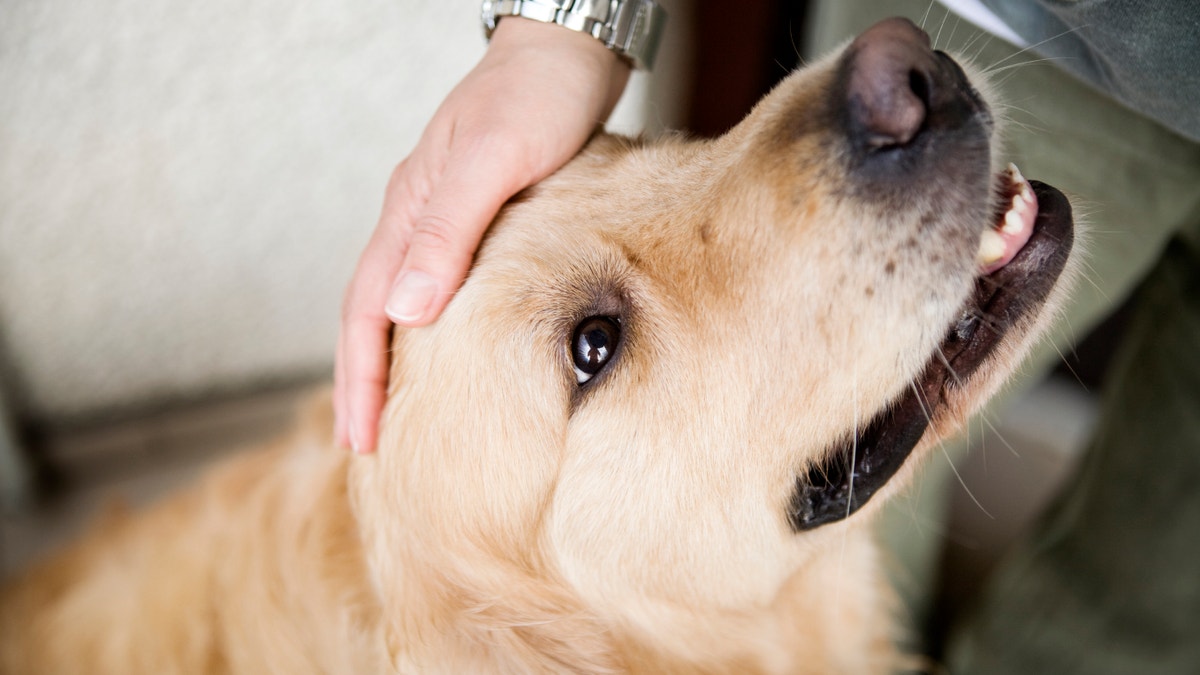
“There are evidence in the literature of treatment that [dogs] Actually abnormal cancer proteins can smell, “a doctor told Fox News Digital. (Estock)
Pashtun Kasio, a medical director of Gastrointestinal Medical oncology at Orange County, City of Hope in California, was not surprised to see the idea that dogs could detect molecules or inbus from cancer.
Click here to sign up for our health newsletter
He told Fox News Digital, “There is a lot of information that is available non-aggressively available in blood, urine or other physical fluids-or even those with cancer are found in their body.”
“It has shown that dogs and other animals are likely to detect some of the chemicals associated with cancer, which are detected in blood or physical fluids in patients with cancer.”
Leave a Reply